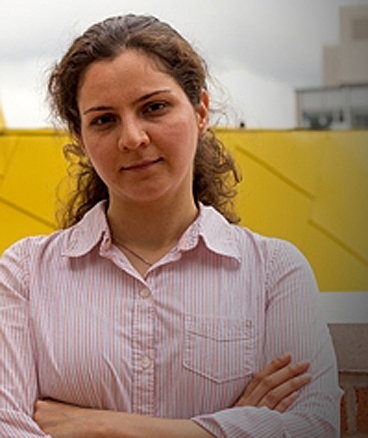"Bipartite matching" is the classic mathematical exercise of making pairs in messy bunches of things, such as matching job seekers to jobs, buyers to online ads, or online daters to each other. This method is at the heart of better market design. It’s also increasing the odds of medical miracles. At LIDS and MIT’s Operations Research Center (MIT-ORC), post-doc Vahideh Manshadi solves matching problems for a very specialized marketplace — one that ultimately enables more people to access life-saving kidney transplants.
More than 102,500 people are currently waiting for kidney transplants in the U.S. Only about 17,000 people receive kidney transplants each year, and about 4,500 don’t get their transplant in time. In the face of kidney shortages, people often offer to donate an organ to a friend or family member in dire need. Unfortunately, about a third of the time, the donor and recipient are incompatible in either blood type or immune profile, resulting in a never-ending flow of hard-to-match patients. Yet, the methods designed by applied economic researchers like Vahideh provide the elegant solution of finding viable transplant matches between complete strangers.
“It’s an opportunity that might not be case for other organs,” says Vahideh, referring to the revolutionary practice called ‘kidney exchange’ in which a living donor gives one of her two healthy kidneys to a stranger in order to secure another kidney for her loved one. More specifically, the simplest exchanges involve two or three patient/donor pairs, for all of whom the intended transplant is impossible, but for whom the patient in each pair could safely receive a kidney from a donor in another couple. These “pay-it-forward” surgeries enable two or three recipients to receive healthy kidneys.
Read the full article
More than 102,500 people are currently waiting for kidney transplants in the U.S. Only about 17,000 people receive kidney transplants each year, and about 4,500 don’t get their transplant in time. In the face of kidney shortages, people often offer to donate an organ to a friend or family member in dire need. Unfortunately, about a third of the time, the donor and recipient are incompatible in either blood type or immune profile, resulting in a never-ending flow of hard-to-match patients. Yet, the methods designed by applied economic researchers like Vahideh provide the elegant solution of finding viable transplant matches between complete strangers.
“It’s an opportunity that might not be case for other organs,” says Vahideh, referring to the revolutionary practice called ‘kidney exchange’ in which a living donor gives one of her two healthy kidneys to a stranger in order to secure another kidney for her loved one. More specifically, the simplest exchanges involve two or three patient/donor pairs, for all of whom the intended transplant is impossible, but for whom the patient in each pair could safely receive a kidney from a donor in another couple. These “pay-it-forward” surgeries enable two or three recipients to receive healthy kidneys.
Read the full article






